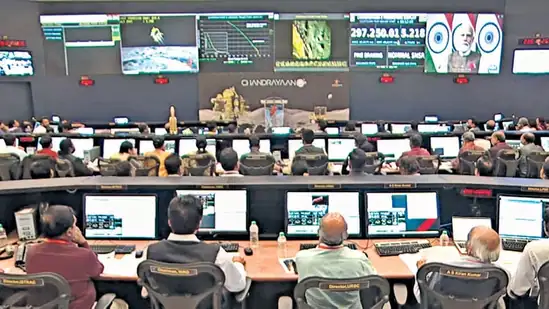The Significance and Career Opportunities for Students Pursuing Space Science and Technology in India
Space science and technology have always captivated the human imagination, but in recent years, their significance has reached unprecedented levels, particularly in India. With rapid advancements in technology and a growing focus on space exploration and research, pursuing a career in this field offers numerous opportunities and contributes to national and global progress.
Significance of Space Science and Technology in India
-
Scientific Advancement: Space science provides critical insights into fundamental questions about the universe, from the origins of celestial bodies to the nature of cosmic phenomena. India’s space missions, like the Mars Orbiter Mission (Mangalyaan) and the Chandrayaan missions, have enhanced our understanding of space and celestial bodies. These missions help in studying planetary surfaces, atmospheres, and the potential for life elsewhere in the cosmos.
-
Technological Innovation: Space technology drives innovation in various sectors. Advances made in space missions often lead to the development of new technologies and materials with applications in other industries. For instance, satellite technology is crucial for telecommunications, weather forecasting, and navigation.
-
Economic Growth: The space industry has significant economic potential. The commercial satellite industry, space tourism, and private space exploration are burgeoning fields. India’s space agency, ISRO (Indian Space Research Organisation), has been at the forefront of cost-effective space missions, setting an example for other nations and attracting global attention.
-
National Security: Space technology plays a vital role in national security. Satellites are essential for surveillance, reconnaissance, and strategic communication. India’s capabilities in space technology enhance its defense and security infrastructure, contributing to national stability.
-
International Collaboration: India’s space missions often involve international cooperation, fostering strong global partnerships. Collaborative projects with other countries promote technological exchange, joint research, and mutual benefits.
Career Opportunities in Space Science and Technology
The field of space science and technology offers a diverse range of career opportunities, reflecting its multidisciplinary nature. Here’s a look at some key career paths:
-
Aerospace Engineer: Aerospace engineers design and develop aircraft and spacecraft. In India, organizations like ISRO, HAL (Hindustan Aeronautics Limited), and private aerospace companies provide opportunities to work on cutting-edge projects related to satellite design, launch vehicles, and space exploration technologies.
-
Astrophysicist: Astrophysicists study the physical properties and behaviors of celestial bodies and cosmic phenomena. Research institutions like the Indian Institute of Astrophysics and the National Centre for Radio Astrophysics offer opportunities for research and exploration in this field.
-
Satellite Systems Engineer: Satellite systems engineers work on the design, development, and maintenance of satellite systems. They ensure that satellites operate effectively and meet mission requirements. India’s growing satellite industry offers numerous opportunities for professionals in this area.
-
Space Scientist: Space scientists conduct research to understand space environments and develop new technologies for space exploration. They may work in research institutions, universities, or space agencies like ISRO.
-
Space Policy Analyst: Space policy analysts study and develop policies related to space exploration, satellite usage, and international space treaties. They work with governmental agencies, think tanks, and international organizations to shape space policy.
-
Data Analyst: Space missions generate vast amounts of data that require analysis and interpretation. Data analysts use advanced techniques to extract valuable information from this data, contributing to mission success and scientific discovery.
-
Space Tourism and Commercial Space Ventures: As the commercial space sector grows, opportunities in space tourism and private space ventures are emerging. This includes roles in space travel planning, customer experience management, and commercial space operations.
-
Educational and Public Outreach: Professionals in this area work to inspire and educate the public about space science and technology. They may work in museums, planetariums, educational institutions, or as part of outreach programs by space agencies.
Preparing for a Career in Space Science and Technology
Students interested in pursuing a career in space science and technology should focus on a strong foundation in STEM (Science, Technology, Engineering, Mathematics) subjects. Advanced degrees in aerospace engineering, astrophysics, or related fields are often required for specialized roles. Internships and hands-on experience with space-related projects or research can also provide valuable insights and practical skills.
In addition to technical skills, students should develop problem-solving abilities, analytical thinking, and a passion for discovery. The space sector values creativity, innovation, and the ability to work in multidisciplinary teams.
Conclusion
Pursuing a career in space science and technology in India offers a pathway to contribute to groundbreaking discoveries and advancements. With the nation’s growing investment in space exploration and technology, the opportunities for students are vast and diverse. As India continues to make its mark on the global space stage, the demand for skilled professionals in this field is set to rise, making it an exciting and promising career choice for the future.

































